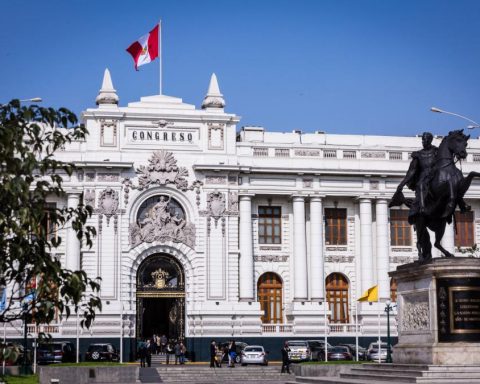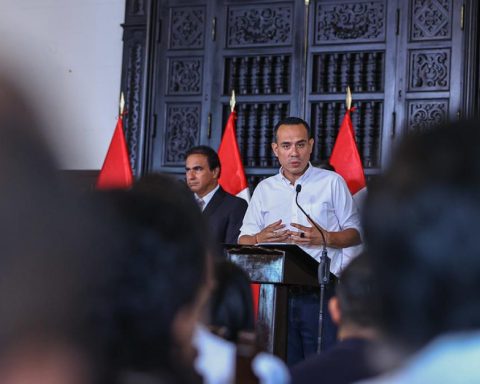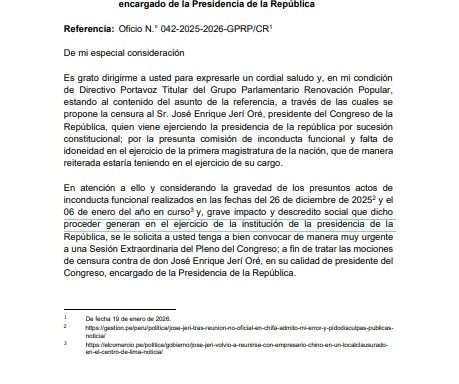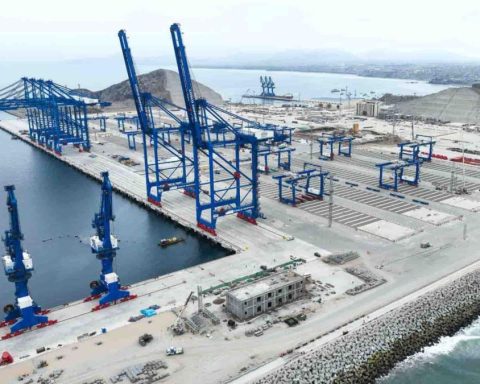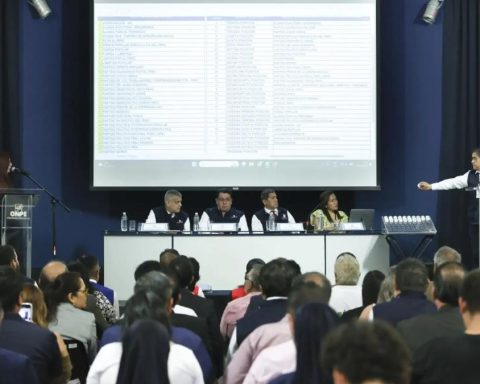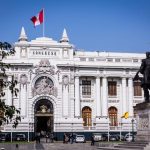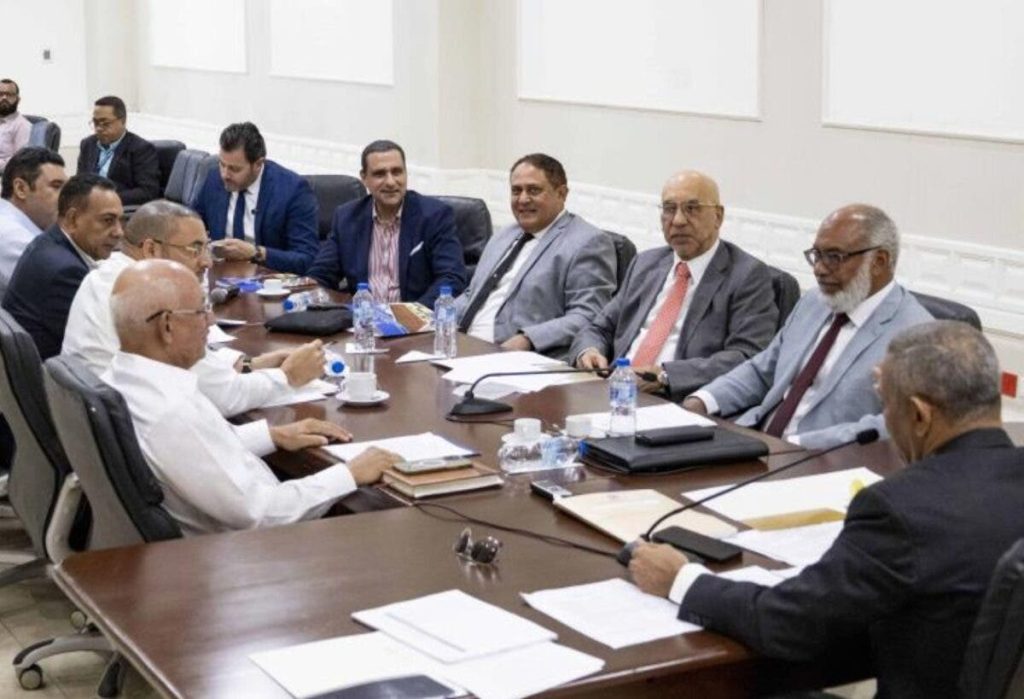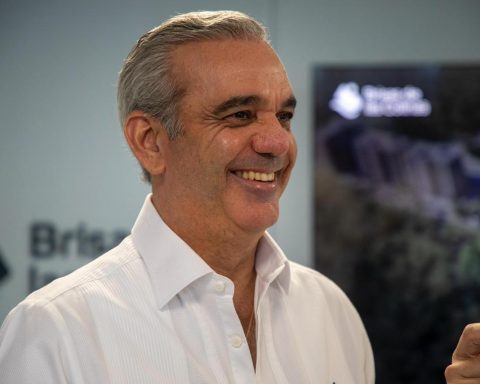CADE Executives This year’s focus is on finding the bridge that allows us to cross from degradation to the reconstruction of our future. In this interview, Gonzalo Galdos, president of IPAE Acción Empresarial, founding organization of CADE, makes a diagnosis of the political and economic context in which the businessmen’s meeting will take place.
The motto of CADE Executives 2024 is associated with the reconstruction of the country’s future. What is that future? Is it auspicious or has it not changed at all?
It hasn’t changed at all. In reality, what has changed is the perception. As the most powerful social media influencers would say, perception is more important than reality. That said, we already knew China’s strategic and geopolitical interest in Peru from the point of view of supplying its raw materials and a possible corridor for certain Brazilian raw materials. That’s not new. We also knew of the limited interest of the United States in Latin America. What has changed is that Peruvians are beginning to realize that we are the most skeptical of a world panorama where Peru seems to have some privileges that we do not deserve.
What are those privileges that Peru has undeservedly?
One of them has to do with our geographical location and the availability of some raw materials that are beginning to become key to the development of some first world countries.
That skepticism you mention could be associated with the fact that we are a country with difficulties in doing business, municipalities put obstacles in place or ask for bribes to grant licenses, and others are unaware of the contracts because it gives them political benefits…
What you mention is reflected in the CADE motto. The situation continues to deteriorate because there are two deficits: one, leadership, which generates an alignment of wills to reverse the situation. There is a lack of leadership both at the political level and in civil society institutions. For this reason, we feel that, with respectful responsibility, CADE has to be a turning point in this degradation and the business community has to assume leadership of this turning point.
What is the second void?
The second major deficit that has accelerated the degradation process is management capacity. We are facing a situation in which the State has failed to provide basic services to generate a minimum of dignity in the most vulnerable population. We talk about health services, education, water and drainage, justice and security. Only with this group of services can we get an idea of how this process has accelerated and degraded. This deterioration has not only affected businessmen, as reflected in the Doing Business ranking, due to bureaucracy and corruption, but also citizens, who no longer have the hope that water and sewage will be brought to them at some point, or for a school lost in the Andes or in the jungle, which does not have the slightest hope of being connected to a decent educational system.
Could these two deficits be associated with the institutional crisis facing the country?
Without a doubt, because what institutions do is establish clear and impartial rules that generate an absence of discretion, favoritism and influence peddling; that prevents, for example, that only those with more resources can access a good education, adequate health services or timely delivery of justice. Institutionalism is central to returning the country to a structure in which the rule of law prevails and in which citizens once again have the same rank in relation to it. This is essential to weaken corruption, which has accelerated as a result of the discretionary capacity that a second-level official may have to do a favor for a person who has some resources.
Why do you think the institutions in our country have deteriorated?
It has deteriorated because the institutions at some point, when there has been a lack of interest on the part of the most capable and most competent people to take charge of those institutions due to political persecution and a series of excesses to prevent the most capable from taking over In charge of these, it began to be filled with incompetent, mediocre people who were also interested in their own gains, capturing the institutions as hostages. I absolutely agree that, although it is a process, it is essential to recover the institutions. The best example of institutions we have in the country is the BCR.
It is up to Peruvians to demand this institutional regeneration so that institutions are not dependent on a single person or a group of people for them to function, but rather that they function independently of who is governing them. This is part of every democracy and the long-term survival of a nation.
Better human capital is needed to talk about the future. However, the State feeds spoiled meat to children in social programs, and the situation is similar with the education service…
Although there is a repetitive discourse that there is a kind of counter-reform in the educational issue with the issue of Sunedu, I, who have been in education for many years, am optimistic about higher education in the country. The problem on which we are mortgaging the future of the country is basic education. Unlike higher education, in which 7 out of 10 are in the private system and therefore have a quality barrier, in basic education 7 or 8 students are in the state system, which is so deficient and does not have the slightest prospect of improvement in the short term. However, all the authorities, the political system, the governments in power distract us by criticizing the higher education system so as not to see the focus.
Take advantage of the NEW EXPERIENCE, receive our enriched digital newspaper by mail and WhatsApp. Peru21 ePaper.
Now available in Yape! Find us at YAPE Promos.
RECOMMENDED VIDEO
